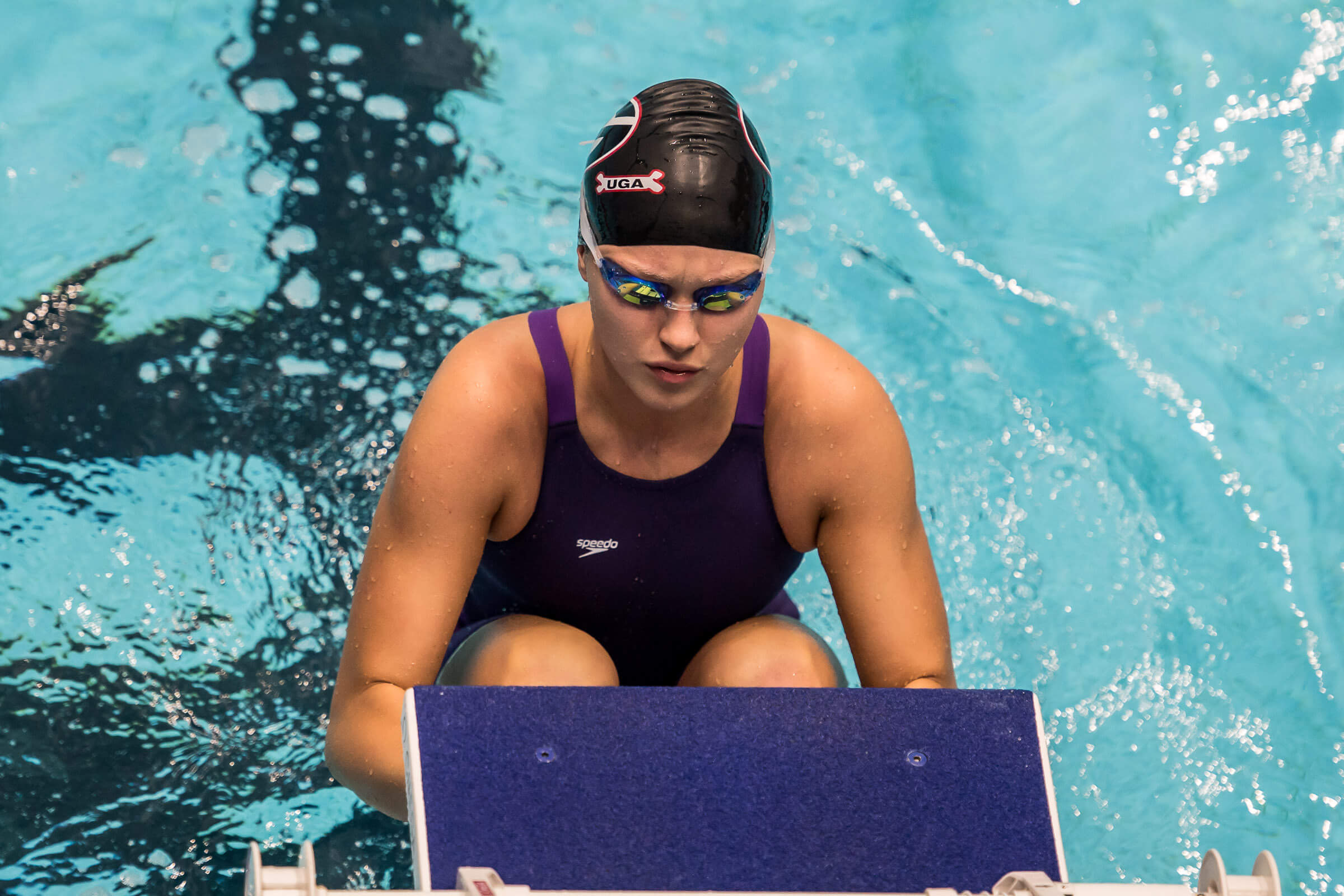An Afternoon with Jack Bauerle and the Georgia Bulldogs

Morning Splash by David Rieder.
One day in April, Jack Bauerle walked off the tennis court with pain in his wrist, so he called up a friend—and a surgeon. The next day, he underwent an operation, “about four surgeries in one,” Bauerle said. He had a bone removed from his right hand, and two cartilage tears and a retracted finger were also repaired.
Now, the Georgia head coach wears a stiff cast that stretches from his right hand up his forearm. He will be sidelined from some of his favorite activities for five months, but he figured he had no choice.
“If I’m going to surf and play tennis again, I had to get it done,” he said.
Bauerle, by the way, is 66 years old, and you don’t find a lot of 66-year-old regular surfers out there. Bauerle is hoping to push his recovery timeline to make a surfing trip in late August, before he gets fully enveloped by his 40th NCAA season in Athens.
That’s right, 40 years. Bauerle was named the women’s swim coach at Georgia in 1979, and he added responsibilities as the men’s coach in 1983. He’s the longest-serving Georgia coach in any sport, active or retired. Andy Landers, who led the Bulldogs’ women’s basketball team to five Final Fours, arrived in Athens the same year as Bauerle but retired in 2015.
And despite those physical ailments, Bauerle is still enjoying the job, “more so than ever.” Unlike longtime Florida coach Gregg Troy, who retired last month at 67 years old, he has no immediate plans to scale back.
“The longer you do it, the more you know what the athletes need, and I think the longer you do it, the more you enjoy them—their differences, their personalities,” he said. “You appreciate them more rather than just coaching them. Like anything else, the more you do it, if you don’t get better at it, it’s your own darn fault. You see things coming a little more.”
On this particular Friday afternoon, Bauerle received an on-deck visit from Georgia political science professor and national security expert Loch Johnson, and he raved about a new high-definition scoreboard that has just been installed inside the Gabrielsen Natatorium.
“The biggest thing is we’ll be able to recognize faces on senior day,” he said. He then added that it was a shame his beloved Philadelphia 76ers had already been eliminated from the NBA Playoffs or else he would have watched their games on the new screen.
The biggest distraction—if one can call it that—came in the name of anti-doping. Seven swimmers arrived for 2:30 p.m. practice to find that they had been tapped for a drug test, and none of them had produced urine samples in time for practice. So they began swimming as the drug testers waited.

Olivia Smoliga — Photo Courtesy: Peter H. Bick
After warm-up, Bauerle read out a kick set, and Olivia Smoliga, one of seven U.S. Olympians in the group, immediately realized that it was a good time to give the testers their urine sample
“I want to do the kick set, but sometimes things naturally happen due to biology,” Smoliga said.
But she eventually decided that nature could wait, and on she went with the set.
If there was any real news uncovered from that one afternoon in Athens, it was this: Smoliga pulls on the lane line. Not that she is the first Olympic gold medalist to engage in that heinous act, nor will she be the last.
At the end of warmup, Hali Flickinger called Bauerle over to her lane to brag: During dryland that day, she had completed 31 straight pullups, the most ever by a female swimmer at Georgia. And yes, she insisted, she returned her arms to a straight hang each time. Pullups, Bauerle explained, are a big deal in his program.
The practice passed without much whooping or hollering, but as the swimmers packed up and left, they pestered Bauerle for hints about the upcoming Saturday morning race set. Initially coy, Bauerle eventually let slip that there “might be some 100s.”




Thanks for sharing.